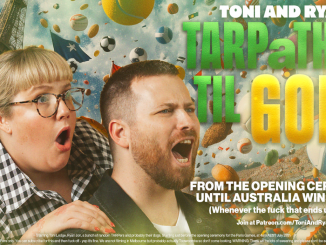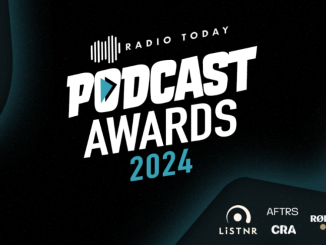
Sports podcasts are shaking up the broadcast landscape in Ireland
Radio has traditionally played a crucial role in keeping people in the Republic of Ireland fully informed about professional sports, but the landscape has changed in recent times.
The emergence of podcasts has challenged radio’s dominance and forced broadcasters to re-evaluate their strategies. The question is, are podcasts a threat or opportunity to the radio industry?
The Growing Popularity of Podcasts
Podcasts first gained popularity in the early 2000s, around the same period when portable digital music players such as the iPod and broadband internet became widespread.
Over the years, technological advancements have aided the distribution and consumption of audio content by making it more accessible on-demand through various digital platforms.
The adoption of smartphones and widespread access to the internet has fuelled the growth of podcasts in Ireland. But the surge in popularity goes beyond the Emerald Isle.
Statistics show that nearly 80% of Americans over the age of 12 are now informed by podcasts, which accounts for more than 30% growth from a decade ago. In North America, 40.8% of internet users listen to a podcast at least once a month. This trend is also evident worldwide.
Just over 28% of the population in Western Europe uses podcasts, so it is unsurprising that the medium has also gained prominence in Ireland.
Podcasts are flexible and accessible. Those features make them appealing, but they also allow listeners to consume content on demand, wherever and whenever they want.
Traditional Radio vs Podcasts
While radio and podcasts deliver audio content, their delivery and engagement methods are quite distinct.
Radio has always been a dominant force in the audio content sector. Local stations have loyal followers, but radio content typically ends once it has been broadcast, limiting its accessibility.
This gives podcasts an edge as they remain online and accessible to listeners, allowing them to tune in at their convenience. That flexibility is crucial, especially to the younger, tech-savvy audience.
Podcast platforms such as Second Captains attract a sizeable audience with their diverse and unique offerings.
The Irish platform is a subscription-based program renowned for its irreverent humour, insightful commentary, in-depth interviews with sporting personalities and sports betting insights.
Their flexibility and convenience appeal to Irish punters who value detailed, timely information that helps them make informed decisions when wagering on betting sites.
With podcasts, listeners can choose programs based on specific interests. The platform provides a setting where hosts can explore topics, interview guests and discuss betting strategies without being limited by time, which is an area where radio struggles to fit in.
However, radio boasts a rich history of providing sports coverage, although the sector tends to be dominated by the older demographic.
Nevertheless, shows such as Sunday Sport on RTE Radio 1 have become national treasures, attracting generations of listeners with expert analysis, live commentary and lively debates.
These programs cultivate a sense of community that allows listeners to get in on the action, share their passion, and engage in real-time conversations.
RTE uses their live format to their advantage. They offer immediate reactions to breaking news, which gives them an edge over podcasts.
Additionally, the accessibility of radio is its own strength. Unlike podcasts that often require users to download applications or subscribe to channels, radio broadcasts are readily available on any device that can pick up signals.
This way, even listeners without smartphones or internet access can stay up-to-date on the latest sporting news.
A Collaborative Future Rather Than a Hostile Takeover
Podcasts are a trendy new vibe poised to take over the audio content sector in the near future, but radio is not going anywhere either.
The popularity of podcasts has created an interplay between both forms of audio content consumption, but there is a world where both can complement each other.
Podcasts offer a compelling alternative, but they are unlikely to completely dethrone radio as Ireland’s primary source of sports news.
The rise of podcasts doesn’t necessarily negate the value of radio. Both mediums can exist and thrive simultaneously. It ultimately comes down to the preference of the listeners.
Those seeking a broad overview of the sporting sector might choose radio, while those who prefer in-depth analysis may gravitate towards podcasts.
Technological advancements will likely play a huge role in consumer preferences over the years, and both platforms will need to adapt and innovate to maintain their audiences. […]





